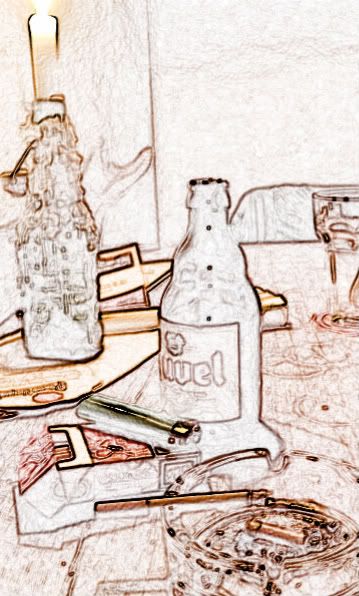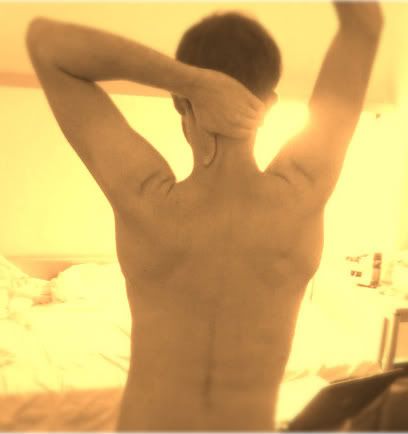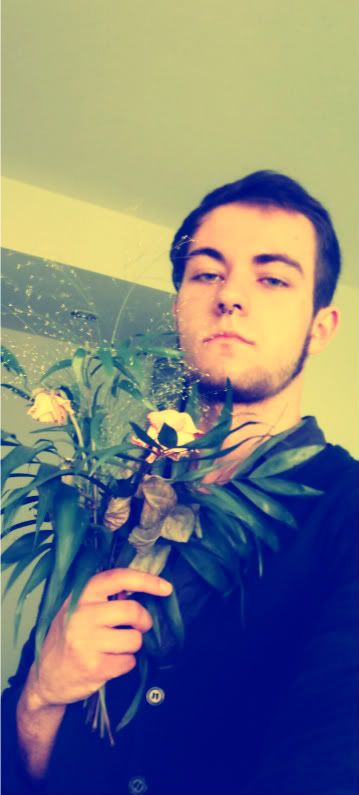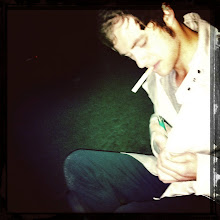What, when I am the villain of my own nightmares?
Give pause to the thought that, outside of comic books and blockbuster films, bona fide evildoers, legitimate psycho-maniacs, and the like are not so distinct. The world is not so obvious in this way.
We become the directors of our own misery. This much I can say is clear. It doesn't turn out for that thing in which we invested and so we can become self-loathing masochists. In this way, each is the villain of his own story. The director of his nightmare, if you like.
The question arises, How does one come to terms with one's desires? The question, I think, is located in the same sphere as the aforementioned self-contempt. We are still responsible when our desires turn out unfavorably (usually), as the gardener whose soil produces bad vegetables (in the act becoming the master not of his wants, but of the opposite). Who is the enemy of his situation?
This example of the gardener and his regrettable plot of land, while a common motif in our lives, does not cover the breadth of misfortune that we are adjusted to experiencing. Precisely, it misses the complexity of many common situations, most notably when the sought are intertwined with the unsought. Imagine the success of the gardener's tomatoes being predicated on the annihilation of his peppers, and vice versa. (Aside, this expanded scenario adds a hierarchy of choices to be made, most obviously which vegetable is most important.) By granting his circumstance, the farmer commits to receiving both everything he desires and everything he has worked to prevent: the "fate" of his crops.
The self-loathing comes when one accepts the desires and the demons at once. It is a capitulation to the self in all of its miseries (and thereby the circumstance that one has brought about) on which laziness and masochism are based. How to come to terms with a scene in which what one seeks to cherish and what one seeks to defy are collected into one figure?
The gardener in the example looks to compromise some of his ego in order to get what he wants. This, I argue, is as close a definition to the central characteristic of a villain as I am willing to perpetuate. On the other hand, the hero will sacrifice his desires to maintain integrity, honesty, and image--to maintain a sense of justice and loyalty--thereby delaying his own interests for some sort of bigger cause.
This self-inflicted delay in gratification necessary to the hero icon is not unlike the masochistic quality in the villain, who sustains undesired consequences to augment his fascinations. Note that the hero insists that his choices are pristine and justified, that he alone makes upright decisions. It's necessitated hypocrisy. Both the hero and the villain make submissions to their character traits in this way.
Thursday, August 18, 2011
Sunday, August 14, 2011
Saturday, August 6, 2011
Sunday, July 24, 2011
Subscribe to:
Posts (Atom)



